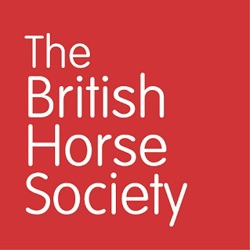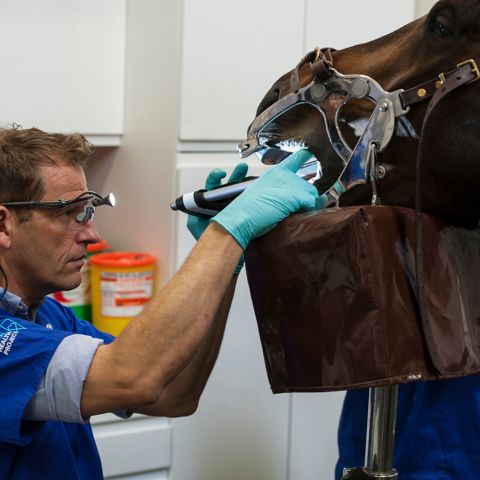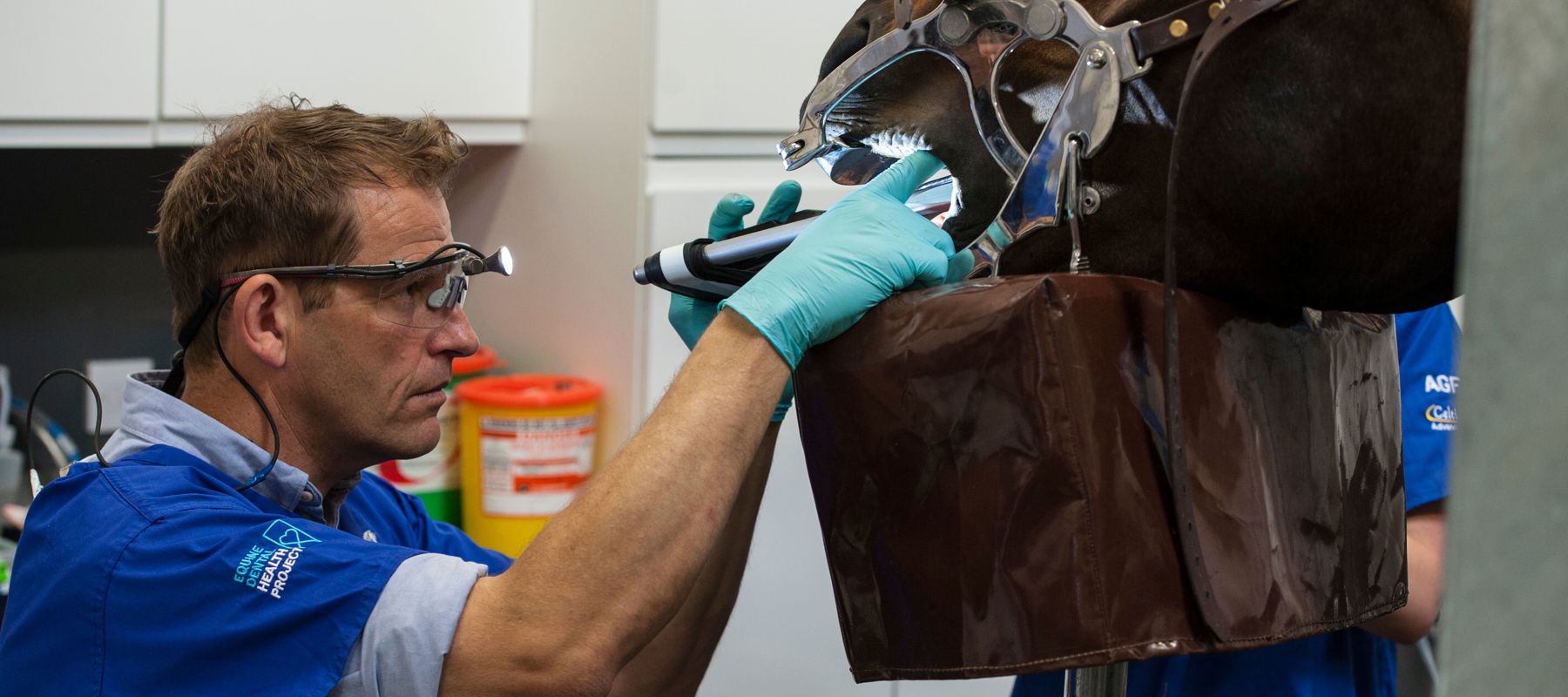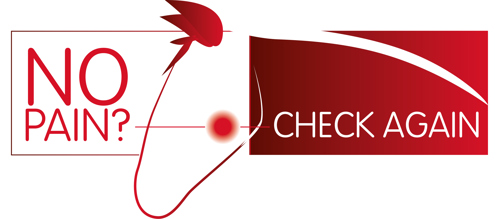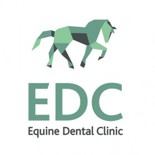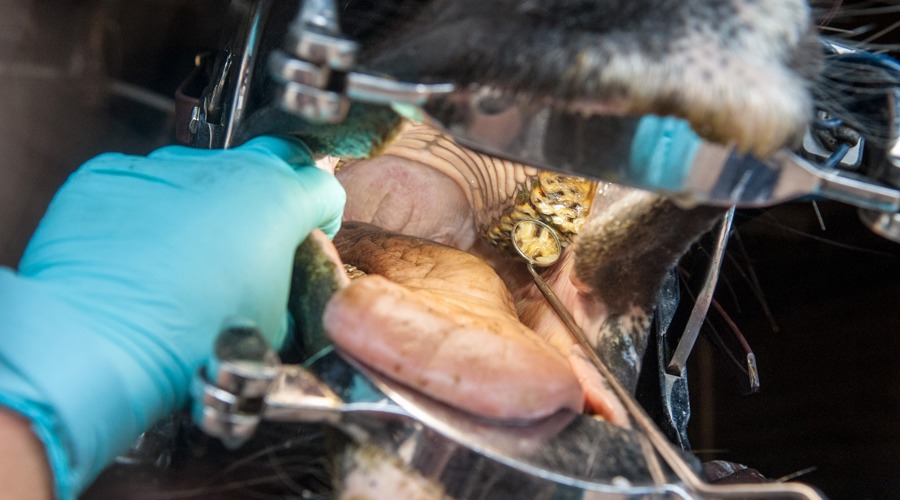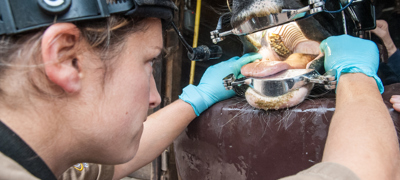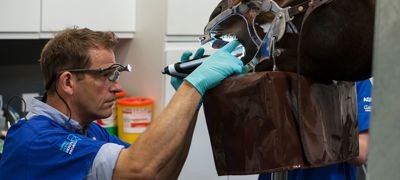No pain? Check again
Horses are stoic animals, which means they can endure pain for long periods of time without showing signs, especially with pain related to teeth. This could unintentionally mean that many horses could be suffering in silence.
Prevention is better than cure and identifying minor or early problems avoids more complicated issues in the future. It’s important to maintain regular dental health checks throughout your horse’s life by a veterinary surgeon, an Equine Dental Technician registered with the British Association of Equine Dental Technicians or category 2 members of The World Wide Association of Equine Dentistry.
We recommend dental checks a minimum of once a year to make sure any problems are treated quickly. This recommendation will vary for older horses or those that have specific abnormalities.
The benefits of regular dental checks
- Keep your horse eating efficiently
- Early intervention is better (and likely cheaper) than dealing with a major dental problem
- Make sure your horse is kept pain-free - there may be no signs
- Prevent the likelihood of tooth loss and other dental problems in older age
- Avoid bitting problems, especially when introducing the bit to a horse for the first time
Signs of dental problems
The early signs of dental problems are very subtle and often the horse will not show any outward signs that anything is wrong. When horses eventually show outward signs of dental discomfort, the problem may have been developing for quite some time. Signs include:
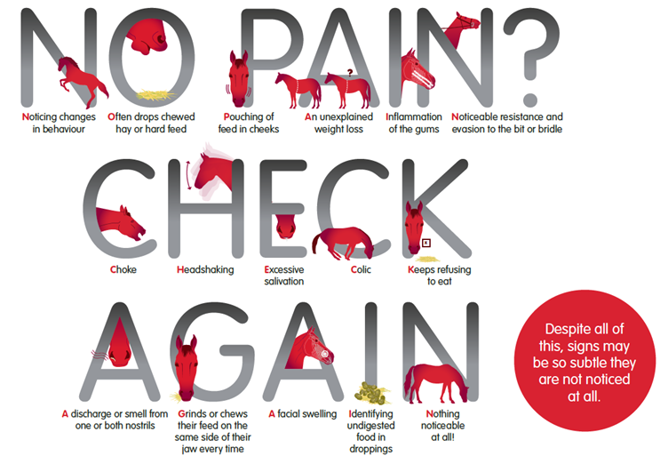
Amazingly, many horses show absolutely NO signs of even advanced dental disorders.
Signs related to ridden evasion or resistance can commonly be misinterpreted as bitting or tack issues - the first thought should be to check if your horse is in pain.
